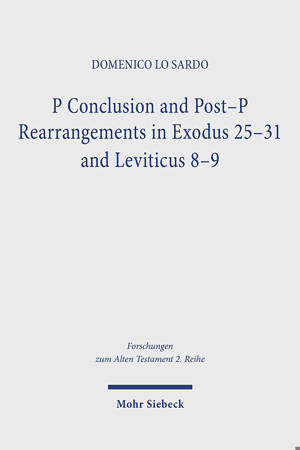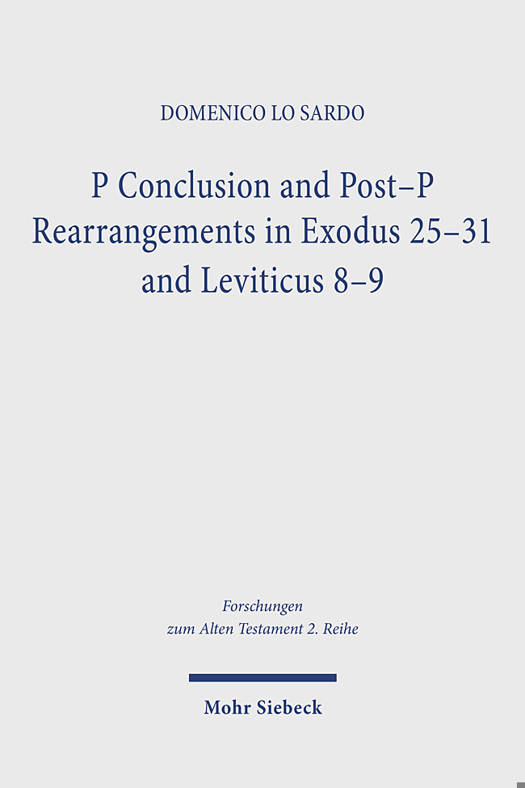
Je cadeautjes zeker op tijd in huis hebben voor de feestdagen? Kom langs in onze winkels en vind het perfecte geschenk!
- Afhalen na 1 uur in een winkel met voorraad
- Gratis thuislevering in België vanaf € 30
- Ruim aanbod met 7 miljoen producten
Je cadeautjes zeker op tijd in huis hebben voor de feestdagen? Kom langs in onze winkels en vind het perfecte geschenk!
- Afhalen na 1 uur in een winkel met voorraad
- Gratis thuislevering in België vanaf € 30
- Ruim aanbod met 7 miljoen producten
Zoeken
P Conclusion and Post-P Rearrangements in Exodus 25-31 and Leviticus 8-9
A Textual and Literary Criticism Study on the Pentateuch Formation
Domenico Lo Sardo
Paperback | Engels | Forschungen zum Alten Testament 2. Reihe | Forschungen zum Alten Testament. 2. Reihe / FAT II
€ 115,95
+ 231 punten
Omschrijving
In this study, Domenico Lo Sardo examines the textual and literary development of Exodus 25-31 and Leviticus 8-9, expanding on prior research on the Tabernacle's second account (Exodus 35-40). He argues that Exodus 25-31 was later composed to legitimize the Temple's construction and was shaped alongside Leviticus 8. Challenging the idea of an early, fully developed Priestly Writing (Pg), his analysis of the texts studied in terms of textual and literary criticism presents it as an evolving tradition with a multistage production history. He further demonstrates that Priestly Writing (P) concludes at Leviticus 8 and does not extend beyond this point. Highlighting themes of divine presence, worship, and sacred space, the author ultimately situates the Temple-cult project within the broader theological framework of creation and covenant fulfillment.
Specificaties
Betrokkenen
- Auteur(s):
- Uitgeverij:
Inhoud
- Aantal bladzijden:
- 360
- Taal:
- Engels
- Reeks:
Eigenschappen
- Productcode (EAN):
- 9783161646843
- Verschijningsdatum:
- 30/09/2025
- Uitvoering:
- Paperback
- Formaat:
- Trade paperback (VS)
- Afmetingen:
- 112 mm x 180 mm
- Gewicht:
- 684 g

Alleen bij Standaard Boekhandel
+ 231 punten op je klantenkaart van Standaard Boekhandel
Beoordelingen
We publiceren alleen reviews die voldoen aan de voorwaarden voor reviews. Bekijk onze voorwaarden voor reviews.









